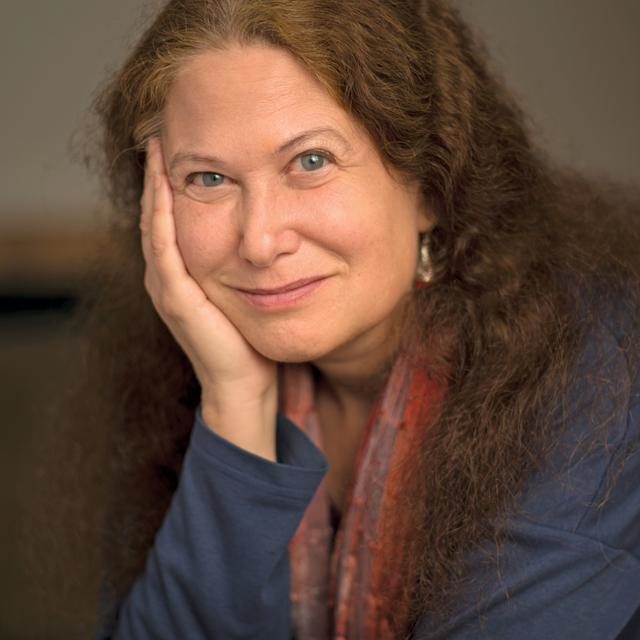In Jane Hirshfield’s poetry there is an unmistakable conjunction of precision and mystery. The precision is both in her observations and in her careful choice of language to record them–her poems feel as if every word, every line break, every comma, has been weighed and reweighed. Yet there is a mystery in them, too. Though it defies easy summary, it pushes us, and possibly even her, into new imaginative spaces. For instance, here in its entirety is one of my favorite Hirshfield poems, “My Species,” from her most recent collection, The Beauty:
even
a small purple artichoke
boiled
in its own bittered
and darkening
waters
grows tender,
grows tender and sweet
patience, I think,
my species
keep testing the spiny leaves
the spiny heart
There is the small domestic detail that feels exact and true. And then there is that extension into something larger that begins with “patience.” But what are we, the “species,” supposed to make of this? The heart is the heart of the artichoke, but it is clearly something else as well. My heart? Your heart? And if you read these thirty words aloud, they produce a kind of music. Some of it comes from the repetition in a small space, but that doesn’t explain it all.
We don’t need it explained. It is enough to let the poem do its work on us. Hirshfield is a practicing Buddhist, one of the talking heads on the award-winning PBS show The Buddha back in 2010. She has also written a couple of wonderfully clear books about writing poems, called Nine Gates and Ten Windows, that give glimpses of the work, the education, and the dedication that has gone into this life of poetry. One of the few contemporary poets who has not chosen a life in academia, Hirshfield has devoted herself to her art, and we can only imagine what that devotion has cost her.
Even the title of her most recent collection, The Beauty, makes a jump most intellectuals and artists are reluctant to make these days. The beauty implies that there is one, a definite, even approachable beauty that we would recognize once we saw it. I doubt that Hirshfield would make any claims of having found the one beauty, but her work is shaped by the search for it. This book ends with a poem that seems to be about numbers but then goes somewhere different:
I wanted my fate to be human.
Like a perfume
that does not choose the direction it travels,
that cannot be straight or crooked, kept out or kept.
Jane Hirshfield reads from The Beauty and from more recent work at UMMA on January 25.


